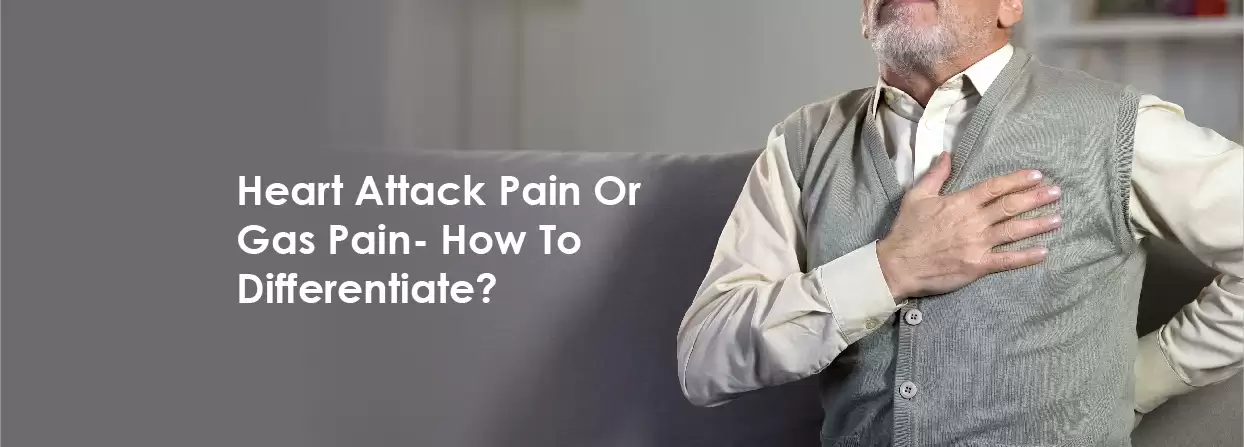
 Emergency No: 08062136599
Emergency No: 08062136599
Cardiology | by Dr. Ashok B Malpani | Published on 15/06/2022
It is quite common to experience a feeling of pain around the chest after a heavy meal or sometimes, in general. People may think their chest is related to cardiac issues. While chest pain is a common symptom of cardiac illness, it is also linked to stomach-related issues. Gas pain in the chest occurs due to the accumulation of excess gas in the abdomen after a meal and feels almost similar to a heart attack.
If you are experiencing symptoms of chest pain, it is important to get a proper diagnosis to ensure effective treatment. Patients who ignore comprehensive analysis and mistake heart attack for gas pain symptoms are at an increased risk of complications including death. If you are looking for a comprehensive diagnosis for your chest pain, then this blog can provide a reference to know what your condition can be. However, please note that this blog is for informational purposes only and does not replace the importance of a doctor’s consultation.
Gas pain symptoms in the chest occur due to intestinal gas consisting of deodorised gases such as hydrogen, methane, nitrogen, oxygen, hydrogen sulfide, and carbon dioxide. Gas pain symptoms in the chest are often similar to a heart attack and usually resolve on their own. However, in some cases, gas pain in the chest can interfere with your daily routine and impact your quality of life. Get in touch with the doctor if you are experiencing the following symptoms of gas pain in the chest -
Heart attack symptoms usually vary in individuals depending on the medical health of the patient, the extent of blockage in the coronary arteries, and any other existing disease. While the heart attack pain areas may be similar to gas pain, the former is a life-threatening condition which can cause the following symptoms -
Gas, heartburn and heart attack can have similar signs. The sensation of gas pain usually occurs as a result of gas that gathers in the stomach or the left part of the colon. However, it is only through comprehensive diagnosis that one can know the primary cause of chest pain.
Identifying the signs of gas pain in the chest or a heart attack involves recognising noticeable differences between the two. Certain parameters based on symptoms, causes, risk factors, diagnosis, and method of treatment can help identify the exact cause of chest discomfort.
|
Gas Pain |
Heart Attack |
|
|
Symptoms |
|
|
|
Causes |
|
|
|
Risk Factors |
|
|
|
Diagnosis |
|
|
There is often a dilemma among people regarding gas pain in the chest versus heart attack. While one condition is related to a gastrointestinal condition, the other can cause serious heart illness. Therefore, it is important to seek medical assistance in case the symptoms become worse. Gas pain in the chest is mostly acute and resolves on its own. The feeling usually persists for an hour or so after a heavy meal whereas, a heart attack is a chronic cardiac disorder which is accompanied by other coronary artery disease symptoms. Both conditions cause pain in the chest which is why is it not wise to neglect the treatment.
Gas pain in the chest usually resolves on its own. But if the condition persists, doctors recommend several dietary changes to get relief from gas pain in the chest -
Yes, preventing gas pain can be easy as it mostly involves lifestyle changes and dietary restrictions. The doctor may recommend the following to prevent gas pain in the chest -
Identifying gas pain in the chest involves being aware of the following symptoms -
Seek medical assistance for gas pain if there are intestinal symptoms such as-
Most heart attacks usually occur in the centre or left side of the chest. Depending on the medical condition of the patient, a heart attack can last for more than a few minutes which usually comes and goes.